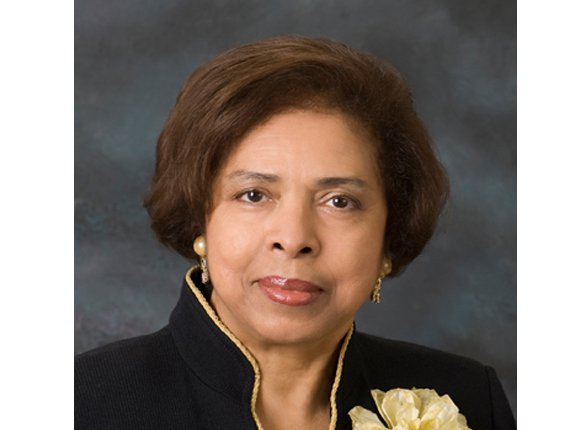Historical stereotypes feed unequal treatment
11/6/2015, 9:07 a.m.
E. Faye Williams
In 2011, Dr. Khalil Gibran Muhammad, executive director of the Schomburg Center for Research in Black Culture, published his book, “The Condemnation of Blackness.” I would suggest it as required reading for anyone interested in historical dynamics that have led to our contemporary position of asserting that Black Lives Matter.
Dr. Muhammad sat for an interview with noted journalist Bill Moyer. He gave his insight on why, from the inception of the Republic to the present, African-Americans were the recipients of disparate and unjust treatment. He said:
“Thomas Jefferson penned ‘Notes on the State of Virginia’ in 1787, which was … one of the first scientific arguments for why black people should be treated differently from whites, by virtue of their racial inferiority.
“In other words, the scientific notion that black people were fundamentally different, whether it was in hair texture or in body odor, which is all part of Thomas Jefferson’s analysis, gave birth to the enduring justification that even in America, even in a place that represented a tradition of republicanism in the world, the first modern democracy, that you could actually reconcile freedom and slavery, as long as the people who were enslaved were not equal citizens, were not made of the stuff of equal humanity.”
Later in that interview, he discussed his understanding of law enforcement and criminal justice in the United States:
“It tells you something about the invention of the criminal justice system as a repressive tool to keep black people in their place .... It’s still with us, because ultimately, as a social problem, crime has become like it was in the Jim Crow South, a mechanism to control black people’s movement in cities.”
As I reflected on the treatment of the black teen at the hands of the South Carolina deputy, my thoughts went back to that interview. I grieved in the thought that, in the face of overwhelming evidence, a significant portion of our population cannot see the disparate and, frequently unjustified, brutal treatment of African-Americans in circumstances that would have elicited an altogether different response had the “suspect” been white. Regardless of the infraction, I challenge any reasonable adult to justify the excessive force used by former Officer Ben Fields to gain control in that classroom. I challenge any adult, black or white, to imagine the same force used against a similarly situated white female teen.
What is all too clear, in our society, is that all black people have been stereotyped and characterized by too many law enforcement officials as dangerous criminals. Without regard for age or gender, black people are perceived as lethal threats to public order and to law enforcement officials. Tamir Rice, Sandra Bland, Eric Garner and Michael Brown stand in evidence of this fact.
Without regard to whom he dated, the important questions are, “What thought process did Officer Fields use to justify his actions against that teenage girl? Was he in such fear for his life that he could rationalize throwing her across the room like a rag doll?” There seems to be no plausible answer to either question. Fortunately, the student didn’t suffer any life-threatening injuries. Unfortunately, the same cannot be said about potentially life-altering injuries to her psyche. Lest we ignore her classmates, we must anticipate that this was a life-changing experience for them, as well.
Foreshadowing where society is today, Dr. Muhammad spoke with great enlightenment:
“Why race matters today ... is really about saving black people. And this is a colorblind public safety agenda because no white community in America would tolerate this kind of treatment in the name of public safety in its communities, period.”
“There’s no moment in time … where race is not a primary factor in the treatment of black people.”
We must stop tolerating this kind of behavior!
Dr. Williams is national president of the National Congress of Black Women Inc.







